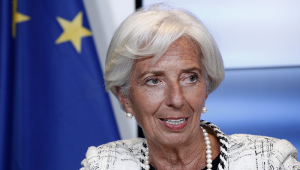web_budapest_shutterstock_278607368.jpg

Budapest, Hungary. Image ©Shutterstock
György Matolcsy, governor of the Magyar Nemzeti Bank, told newspaper Magyar Nemzet that improving productivity in the nation and competitiveness will help define this decade.
He said that in order for the nation to grow, it will need to harness foreign investment and European Union funding, which will enable the central bank to reopen targeted loans to support the economy.
Matolcsy said: “These [targeted loan programmes] could reopen if the central bank and the government work together to beat inflation.
“For the latter, the budget needs to return to equilibrium and the government needs to make a full turnaround in competitiveness.
“Without them, inflation cannot be permanently defeated.”
The governor likened the current scenario facing Hungary to the 1970s, were high inflation, large budget deficit, swelling government debt, and bad government policies “spoiled the entire decade”.
Last week the central bank raised its lending by 0.5 percentage points to 2.9%, to help stem rising inflation which reached 7.4% in December.
A statement from the bank said that further interest rate hikes are expected throughout this year, in an attempt to bring inflation back down towards its 3% target.
Hungary has been at odds with the European Union, after the bloc accused the nation of undermining the rule of law, over governance and perception of corruption.
In August, ratings agency Fitch said it was unlikely the disagreement with the EU, would affect Hungary’s ability to access €7.2bn grant under the Covid-19 Recovery and Resilience Facility.
In October 2020, prime minister Viktor Orban threatened to pull out of the recovery fund, which is tied to rule of law adherence, including on an independent judiciary, media, academia and other civil society groups.













